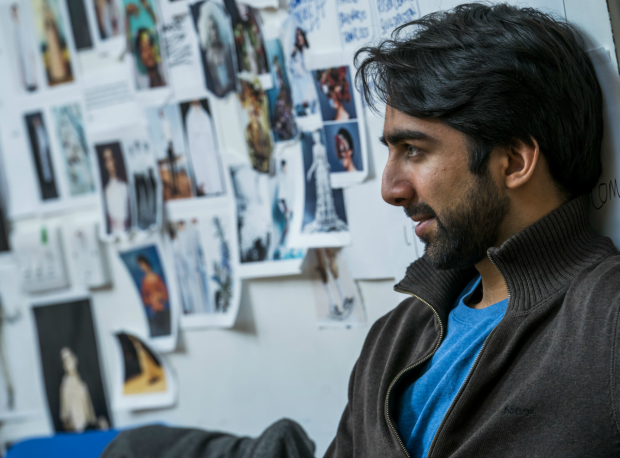What's it like for a man to play Ophelia?
As Shakespeare’s Globe’s new season kicks off with in rep productions of Hamlet and As You Like It, Shubham Saraf explains what it’s like to play Ophelia to Michelle Terry’s Danish prince

© Tristram Kenton
Michelle Terry is playing Hamlet, you're playing Ophelia, are you playing the character as a woman or a man?
I don't know whether there's a clear answer to that. In approaching it, Michelle [Terry, the new artistic director of Shakespeare's Globe] said something interesting which is that we're kind of beyond gender now. And I think if we were to make a decision that I'm going to play her as a man or a woman, that hints at commenting on something. I think you can connect with the character in a way that's beyond gender, that transcends these labels and connect to it as much as you can on a human level. Then people will see what they want to see. It releases the character.
So you're letting the audience decide?
It's as if the character or text is a glass prism and you shine a light through it and a rainbow comes out and people can see whatever colour they want to see. Since I am a man and the character is a woman, it's bound to bring out different colours in the character that they haven't seen before. But if I was to go: 'By the way nudge wink nudge, haven't you noticed that I am a man and the character is a woman' there's a kind of control there, which goes against our whole process.
What has been your process as an ensemble?
It's that we're not really in control. We're going to let you experience what you have to experience, we're not going to try and comment or label it. So it's been very interesting. We're trying to make choices and do actions really in the moment. So you either hit something that resembles truth, or you don't. And in that space it becomes very revealing. There's no comfort in our process, I never know what Michelle is going to do, or what I'm going to do to. It's exciting but you have to be on, all the time, you can't relax.
Ophelia is one of the most talked about of female roles in Shakespeare's canon, she's often seen as a victim. What's it like playing that character as a man?
There's so much that's been written in academia about the feminism within the play with regards to Ophelia, and how she's oppressed and a victim, but for me, that wasn't really sitting right. I started to read more and more and there's an argument where Ophelia is referred to as the Antigone of Hamlet. And I found that interesting.

© Tristram Kenton
So there's more defiance in Ophelia than she's often given credit for?
When it was written, it was a huge act of defiance to commit suicide. Ophelia never compromises on her desire and love, and it's that that drives her to do what she does. If you look at Hamlet, there's a degree of dithering with regards to his desire and action. There are three youths in the play, Hamlet, Ophelia and Laertes, they all lose their father. One is stuck between that inaction and action. Laertes, immediately is driven into action, whereas Ophelia in a way either chooses inaction, or takes action in a different way.
Presumably you won't be dressed up in Elizabethan garb?
That's not actually true. I don't want to give too much away, but our Hamlet strips back everything and reveals the actors and text as completely bare, it's very exposing and there's nothing like a fancy set to hide behind. The process that we followed was not original practice, but original process, we were informed by the original architecture of the clothes. There's a twist… The Elizabethan clothes, for example, the corset, they are very constricting and when you are playing someone completely oppressed by the rules of the court and the men around her it's very useful to have that straitjacket to pull off. I think it's a very different feast for the eyes to what you might expect.
In a space like Shakespeare's Globe, previews must be really important. Presumably rehearsing there with no audience just doesn't really work…?
I remember doing tech and the dress rehearsal and it felt farcical at points with no audience. The presence of the audience is so strong when they're there, that when they're not there, it's like hitting a wall of concrete. I've had moments where I've locked eyes with an audience member and they decided to go with me and it's like nothing I've ever experienced. You don't experience that anywhere else as an actor.



















